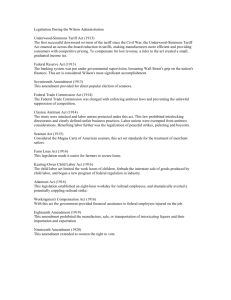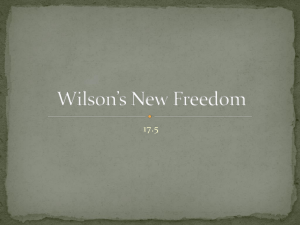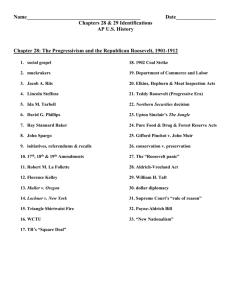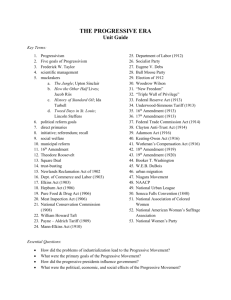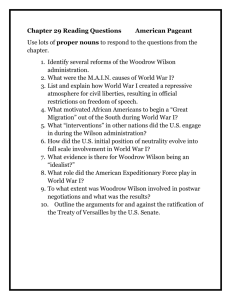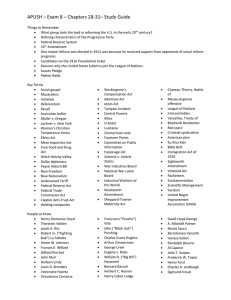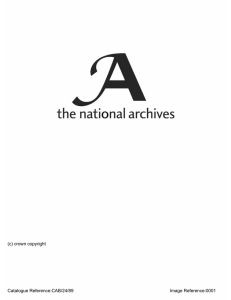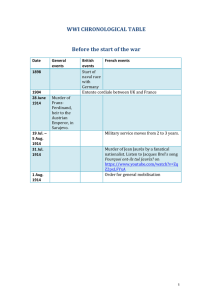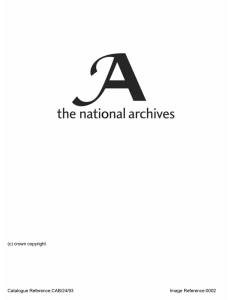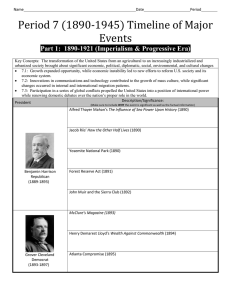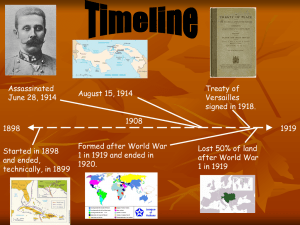APUSH Term Sheet Chapter Twenty-Nine: Wilsonian Progressivism
advertisement
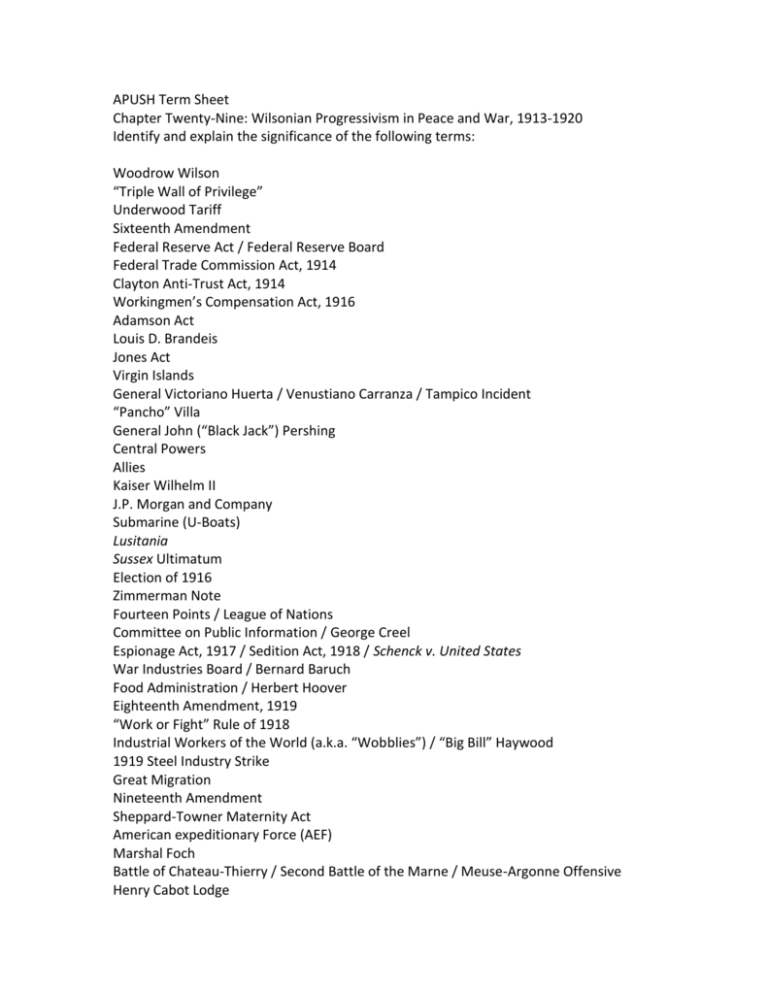
APUSH Term Sheet Chapter Twenty-Nine: Wilsonian Progressivism in Peace and War, 1913-1920 Identify and explain the significance of the following terms: Woodrow Wilson “Triple Wall of Privilege” Underwood Tariff Sixteenth Amendment Federal Reserve Act / Federal Reserve Board Federal Trade Commission Act, 1914 Clayton Anti-Trust Act, 1914 Workingmen’s Compensation Act, 1916 Adamson Act Louis D. Brandeis Jones Act Virgin Islands General Victoriano Huerta / Venustiano Carranza / Tampico Incident “Pancho” Villa General John (“Black Jack”) Pershing Central Powers Allies Kaiser Wilhelm II J.P. Morgan and Company Submarine (U-Boats) Lusitania Sussex Ultimatum Election of 1916 Zimmerman Note Fourteen Points / League of Nations Committee on Public Information / George Creel Espionage Act, 1917 / Sedition Act, 1918 / Schenck v. United States War Industries Board / Bernard Baruch Food Administration / Herbert Hoover Eighteenth Amendment, 1919 “Work or Fight” Rule of 1918 Industrial Workers of the World (a.k.a. “Wobblies”) / “Big Bill” Haywood 1919 Steel Industry Strike Great Migration Nineteenth Amendment Sheppard-Towner Maternity Act American expeditionary Force (AEF) Marshal Foch Battle of Chateau-Thierry / Second Battle of the Marne / Meuse-Argonne Offensive Henry Cabot Lodge Paris Peace Conference / Big Four Treaty of Versailles Irreconcilables Election of 1920 (a.k.a. the “Solemn Referendum”)
